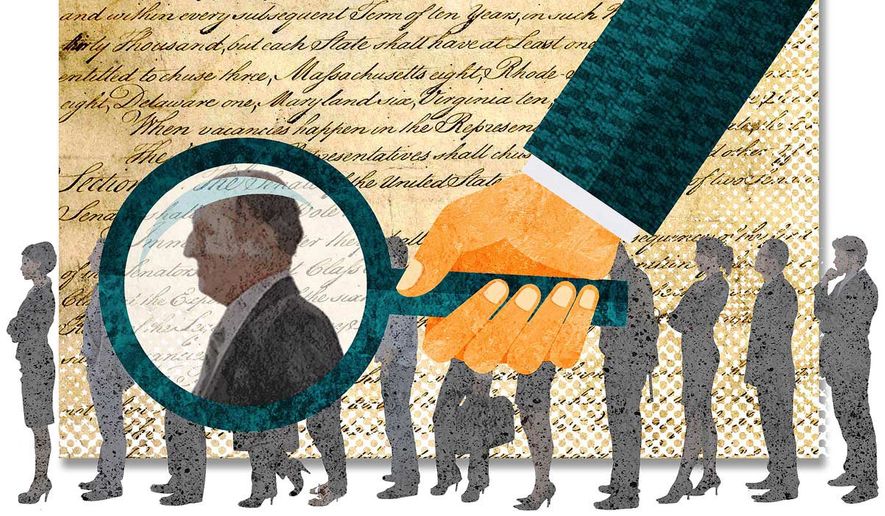OPINION:
A version of this story appeared in the daily Threat Status newsletter from The Washington Times. Click here to receive Threat Status delivered directly to your inbox each weekday.
The government is spying on you without lifting a finger. Gone are the days of G-men sneaking into homes to plant bugs or tap phone lines while listening in from a nondescript van parked across the street. Today’s law enforcement agencies snoop in comfort by asking private companies to supply a detailed dossier of your habits, beliefs and preferences in exchange for taxpayer cash.
“Governments can and are colluding with these corporate agents to develop a picture not only of our actions but of our thought and words so that deviation from the desired end can be mapped, rewarded and punished,” psychologist Jordan Peterson explained March 7 in his testimony before the House Select Subcommittee on the Weaponization of the Federal Government.
Google last year responded to more than 2,000 warrantless requests for information from government entities through national security demand letters. The Silicon Valley search giant also responded to 164,350 requests pursuant to some kind of legal authority, charging up to $245 per occurrence, raking in millions in extra cash.
Other providers will sell personal data to anyone with a big enough checkbook — no pretense of legal process needed. Earlier this year, Sen. Ron Wyden, Oregon Democrat, released documents confirming that the National Security Agency and Defense Intelligence Agency have been gobbling up as much “commercially acquired” private data as they can.
This form of warrantless intrusion on the lives of ordinary citizens happens because the courts invented an exception to the Fourth Amendment called the “third-party doctrine.” It rests upon the absurd premise that customers have no expectation of privacy in the information they generate while doing business with a bank, cellphone provider or tech giant.
Of course, government agencies insist they use this loophole to collect “only the most useful data relevant to mission requirements.” But this is a dodge. As Edward Snowden revealed, the NSA already taps into internet providers to sweep up all communications without a warrant. Private companies collect more data that can often be more personal and revealing than phone calls and email.
For instance, Tesla places cameras in their vehicles to watch drivers at all times for “safety” purposes. A recent Reuters investigation revealed some misbehaving employees would look through the recordings and share the most embarrassing moments around the office.
Car companies like General Motors have been selling highly detailed customer records — where and when they drive, and how fast — to the data broker LexisNexis, according to a New York Times report.
Intelligence and law enforcement agencies say “trust us” with the information they are amassing, but their devious ways have been exposed. In a top-secret 2017 memo, the Foreign Intelligence Surveillance Court discovered unlawful spying on U.S. residents using what is known as FISA Section 702 authority. “NSA estimates that approximately eighty-five percent of those queries … were not compliant with applicable minimization procedures,” Judge Rosemary Collyer wrote in the declassified memo.
The infrastructure for building a dystopian future is already here. Congress can stop it by ending the third-party doctrine requiring knowing consent before customer data can be shared and sold — especially to Uncle Sam.




Please read our comment policy before commenting.